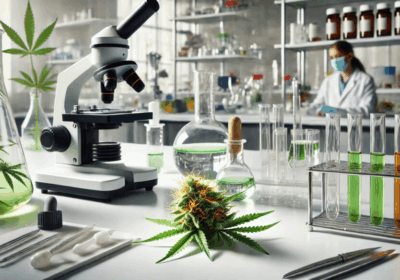
What is the main cause of chemical pregnancy?
Pregnancy is something that is often looked forward to in couples especially after being together for years. Pregnancy can be scary for a mother-to-be for the first time. Every mother wants their pregnancy to be a success and end with delivering a healthy baby. However, there are many things that can go wrong during pregnancy that make pregnancy unsuccessful. In this DoctorOnCall’s article, we will learn about chemical pregnancy that is part of the problems that can occur during pregnancy.
Chemical pregnancy is an early miscarriage that happens before pregnancy reaches 5 weeks. As a matter of fact, most women do not even know they are actually pregnant. The early miscarriage occurs too soon after a missed menstrual period. When chemical pregnancy occurs, the embryo typically forms but stops developing too early in the pregnancy. Chemical pregnancies are very common with the number of 25% of women who have miscarriage before the pregnancy reaches 20 weeks and 80% occur very early in pregnancy.
It is not exactly understood why chemical pregnancy occurs. However, it has been said that the main cause of chemical pregnancy is the chromosomal abnormalities in the embryo. This led to the development of the embryo to stop. Any issues that cause problems in the implantation into the uterine lining may contribute to the chemical pregnancy. The embryo itself produces hCG when it develops but due to chemical pregnancy, it stops producing the hormone. This will lead to the failure of maintaining a pregnancy.
The term “chemical pregnancy” itself means a positive result on a test that causes chemical reaction in detecting pregnancy. This is in contrast with “clinical pregnancy” where pregnancy can be seen on an ultrasound. The clearest indication of chemical pregnancy is a positive pregnancy test result followed by a negative one. The pregnancy test may also be positive but then followed with a period. The pregnancy test can be at the doctor’s office or at home. Nowadays pregnancy tests are very sensitive as they can identify pregnancies as early as the first day of embryo implantation. However, research shows that up to 25% pregnancies result in miscarriage before pregnancy symptoms show up or a missed period.
Even if it is impossible to exactly know who will experience a chemical pregnancy, having any of the risk factors can give clues on who is likely to experience early miscarriage. This includes women aged 35 and above, unusual shaped uterus, imbalanced hormones, low body weight, previous history of sexually transmitted infections (STI) and medical conditions such as diabetes or polycystic ovarian syndrome (PCOS).
Chemical pregnancy does not always cause symptoms. Even if there are symptoms, it is often subtle and mistaken as a non-pregnancy state. Symptoms are heavier than normal period, intense cramping a week later than usual and lack of common pregnancy symptoms such as morning sickness or breast soreness after a positive pregnancy test. To better understand if a woman had experienced chemical pregnancy, doctors can ask for a test to check the level of hCG hormone. A low hCG level indicates chemical pregnancy. The test can be a urine or blood test.
In most cases of chemical pregnancies, there is no need for treatment. The miscarriage occurs early enough in pregnancy that may seem similar to normal or slightly heavy periods. A woman’s body typically passes the pregnancy in a natural way and is able to recover quickly. Besides hCG tests to confirm the level of the hormone, doctors may run ultrasound tests to check if there is a growing foetus.
It can be concluded that chemical pregnancies are an early miscarriage that occur before the pregnancy reaches 5 weeks. In most cases, women do not even realise they have this condition or knew they were pregnant. Pregnancy tests are sensitive enough to indicate if a woman was pregnant as early as the first day embryo implants on the uterine lining. Treatment is often not needed. Most women can attempt to get pregnant again almost immediately after an early pregnancy loss unless stated otherwise by doctor. It is possible to ovulate and become pregnant again as soon as 2 weeks after an early pregnancy loss. Women that have experienced chemical pregnancy in the past do need to worry for future pregnancies as it is not a definite determinant that there is difficulty in conceiving in future. Furthermore, a chemical pregnancy means the embryo has reached the preimplantation phase of development, indicating positive signs women can get pregnant in future.
Pregnancy loss can cause emotional distress. Having chemical pregnancy should not be a reason to blame the women or even anyone as there is no one at fault. It is during this time that women should get support from loved ones. Talking to a therapist can help overcome this difficult time. When the woman is ready to get pregnant again, they might want to discuss with doctors on how to increase chances for a successful pregnancy and a safe delivery.
Buy Exelon Patch 5 (4.6mg/24hr) Transdermal Patch 30s

















